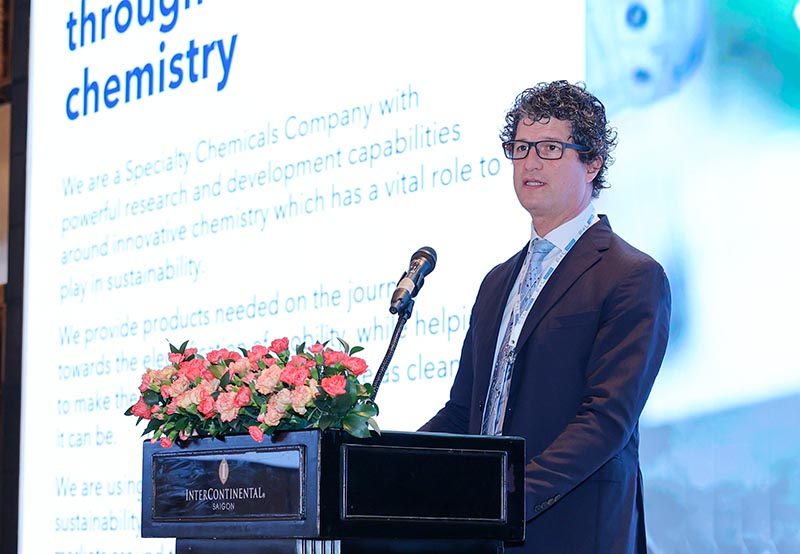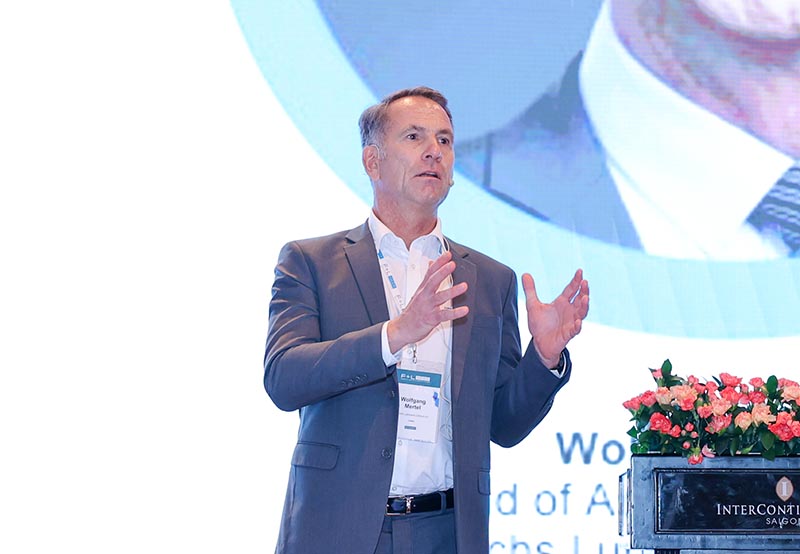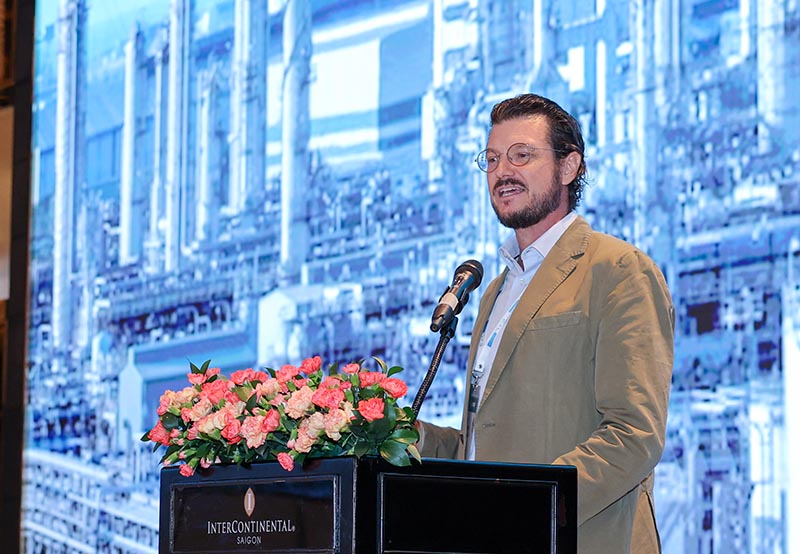
Sustainability: How to balance the cost vs. value dilemma
High sustainability ambitions come with a cost. At the recently concluded F+L Week 2024 Maurizio Abbondanza, sustainability director at Infineum, delivered an insightful address, shedding light on the delicate balance between cost and value in sustainable solutions. The annual industry gathering, held on March 7-8, 2024 in Ho Chi Minh City, Vietnam, gathered industry leaders from around the globe to explore critical issues under the theme Towards Carbon Neutrality: Future Opportunities in Fuels and Lubricants.

When analysing sustainability from a mathematical perspective, traditional or less sustainable solutions often appear cheaper than newer, more sustainable ones, says Abbondanza. New and emerging technologies, while promising, are typically associated with higher costs and inefficiencies due to limited scale and additional process/ treatment steps—which require extra time, effort and energy. Abbondanza also underscored the impacts of single sourcing and logistical complexities in sustainable solutions.
Analysis tends to favour non-sustainable solutions when externalities are not factored into the cost equation, says Abbondanza. This perception can be misleading.
We cannot continue to ignore external factors, such as environmental considerations, in our assessments. Abbondanza outlined the need to change the framework of Enterprise Risk Management (ERM) to include the cost of mitigating non-sustainable solutions that organisations incur every day. Such a change will likely reduce the gap between sustainable and non-sustainable options, he says.
There is an acknowledged need to achieve economies of scale to increase output. It is important to invest in sustainable sourcing and scale up the supply chain, including establishing multiple supply points to address regional needs. Achieving this at an industry level requires interventions, says Abbondanza. Regulations and incentives are crucial for reducing costs and achieving economies of scale. Abbondanza also emphasised the need to align on a common methodology to measure product carbon footprints (PCF) and the necessity to share PCF data.

In a presentation on “The Sustainability Journey of an Independent Lubricant Supplier,” Wolfgang Mertel, head of Asia/Pacific Specialities, FUCHS Lubricants (China) Ltd, echoed Abbondanza’s comments. FUCHS is a family-owned business with a long-standing history in the lubricants industry. Founded in Germany in 1931 by Rudolf Fuchs, the company has grown into one of the world’s leading suppliers of lubricants and related specialties.
In 2023, FUCHS established science-based targets for emissions savings including a long-term goal to reduce all emissions (Scope 1, 2 and 3) by at least 90% by 2040. The base year for these reduction goals is 2021. FUCHS also strongly supported the development of a harmonised PCF methodology by the Union of the European Lubricants Industry (UEIL) and ATIEL, The Technical Association of the European Lubricants Industry.
A prerequisite for a dependable PCF calculation is the availability of reliable primary data from suppliers, says Mertel. However, the majority of suppliers are not yet able to provide meaningful data, he says.
Mertel noted that FUCHS is intensifying pressure on suppliers to provide data as part of annual supplier evaluations. The company is steadily increasing data density, which includes the modelling of specific secondary data. However, Mertel also observed the low coverage of lubricant-specific data in secondary databases such as Ecoinvent or Sphera. Hence, FUCHS is cooperating with specialised startups, such as Carbon Minds, to close the gap.
In an address titled “Lubricating the Wheels of Progress: The Transformation to Sustainable High-Value Lubricant Technology,” Dr. Kristina Jovic, RDI sustainability manager at Evonik (SEA) Pte Ltd, outlined the importance of the full lifecycle of the application, as this includes use-phase efficiency, which enables total cost of ownership comparisons. By doing so, the lubricant industry can showcase the role that high-performance lubricants can play in creating a cost-effective, yet sustainable future. She noted that cradle-to-gate PCFs are dynamic and will change over time, emphasising the need to learn how to navigate ambiguity while maintaining focus on reductions.
Jovic also underscored the importance of the lubricant industry’s continued efforts in developing top-tier lubricants that enable customers to achieve carbon neutrality—focusing on extended lifetime, higher efficiency, and lower costs over the product’s lifespan. Additionally, she stressed the significance of conducting portfolio sustainability assessments to phase out low-tier lubricants. This includes the need to evaluate raw materials and maximise the utilisation of available bio-based and recycled resources.

Keith Schulz, chief sustainability officer at Motul Asia Pacific, addressed one of the most contentious issues in organisational efforts to become carbon neutral: the lack of accounting for Scope 3 emissions. He put forward “A Case for Urgency in Addressing Scope 3 GHG emissions” to F+L Week attendees.
The vast majority of company emissions in the oil and gas industry, perhaps as much as 90%, are Scope 3 or indirect emissions. Schulz stressed the need to include indirect emissions in organisational policies and recommended applying the GHG Protocol for technical guidance on calculating these emissions.
The Motul representative outlined the importance of obtaining top-down buy-in from key vendors, suggesting preparation calls with key partners. Schulz detailed several “responsible procurement steps,” which included communicating organisational policies, directions and intentions with relevant suppliers.
During bp’s presentation on “Driving Sustainability Through Technology Innovation in Fuels and Lubricants,” Charlotte Kehoe, technology manager, Asia Pacific at bp Singapore, proposed that disruptive innovation is reshaping the competitive landscape and propelling the energy transition forward. Technology innovation is a crucial component of bp’s response to the sustainability agenda, says Kehoe.
Energy is gradually electrifying, with an increasing role for hydrogen and bioenergy in hard-to-abate sectors. Kehoe encouraged embracing disruption and the innovation it brings, celebrating creative problem-solving that leads to innovative solutions.
Moreover, Kehoe emphasised the importance of collaboration and partnership in tackling the complex challenges of carbon neutrality. She stressed that collective effort and collaboration are essential for addressing these challenges effectively.








